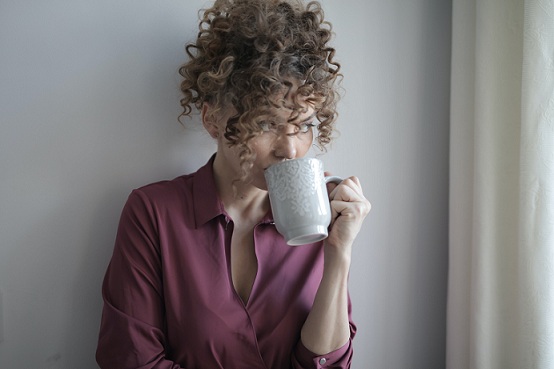Does chai tea have caffeine in it?
Does chai tea have caffeine? Yes, chai tea typically contains caffeine. Chai is a tea made by brewing black tea with a blend of spices and herbs, including cinnamon, cardamom, ginger, and cloves. The caffeine content in chai tea primarily comes from the black tea used as a base. The amount of caffeine in chai can vary depending on factors like the type of black tea used and the brewing method, but it is generally lower in caffeine compared to a cup of pure black tea.
Does chai tea have caffeine? If you are looking for a caffeine-free option, you can find herbal or caffeine-free chai teas on the market that use herbal teas like rooibos or other caffeine-free alternatives as the base instead of black tea. These caffeine-free versions are often referred to as “caffeine-free chai” or “herbal chai” and still offer the spicy and aromatic flavors associated with chai but without the stimulating effects of caffeine.
Let’s delve into the details of chai tea and its caffeine content.
Chai Tea Composition: People are very curious about the composition of tea, and they search to see if chai tea have caffeine. Chai tea is a popular beverage, especially in South Asia, known for its robust and aromatic flavors. It typically consists of the following components:
-
Black Tea: Chai is traditionally made using black tea leaves. Black tea is made from the leaves of the Camellia sinensis plant and contains caffeine. The amount of caffeine in black tea can vary based on the type and preparation. On average, an 8-ounce (240 ml) cup of black tea contains around 40–70 milligrams of caffeine, although this can vary.
-
Spices and Herbs: Chai gets its distinct flavor from a blend of spices and herbs. Common spices used in chai include cinnamon, cardamom, ginger, cloves, and black pepper. These spices are responsible for the warm, spicy, and often sweet taste of chai.
Caffeine in Chai Tea: The caffeine content in a cup of chai tea primarily depends on the type of black tea used and the proportions of tea to other ingredients.
-
Black Tea Content: Since chai is made with black tea as its base, it contains caffeine. The caffeine content will vary depending on the type of black tea used and its brewing strength. Some types of black tea, such as Assam or Darjeeling, have higher caffeine levels than others.
-
Blending with Spices: In traditional chai recipes, the amount of black tea is relatively small compared to the volume of spices and milk or water. This means that the caffeine content in a typical serving of chai is lower than in a cup of pure black tea.
-
Brewing Time and Method: The brewing time and method can also affect the caffeine content. A longer steeping time and the use of more black tea leaves will result in a higher caffeine concentration.
Caffeine-Free Chai: If you’re looking to avoid caffeine, there are alternatives available:
-
Herbal Chai: Some chai blends are made without any black tea leaves, using caffeine-free herbal bases instead. One common substitute is rooibos tea, a South African herbal tea that doesn’t contain caffeine.
-
Decaffeinated Chai: You can also find decaffeinated chai teas where the caffeine has been removed from the black tea. This will have only trace amounts of caffeine left.
In summary, traditional chai made with black tea contains caffeine, but the content can vary. If you want to enjoy the flavors of chai without caffeine, look for herbal chai blends or decaffeinated versions. These alternatives retain the spicy and aromatic character of chai while being caffeine-free.
How do I make chae tea?
“Chai tea,” which is a popular beverage made with a blend of tea leaves and aromatic spices, Chai is typically made using black tea, milk, sugar, and a combination of spices such as cardamom, cinnamon, ginger, cloves, and black peppercorns. Here’s a basic recipe for making chai tea:
Ingredients:
- 1 cup water
- 1 cup milk
- 2-3 teaspoons black tea leaves (or tea bags)
- 2-3 tablespoons sugar (adjust to taste)
- 2-3 green cardamom pods (crushed)
- 1 small piece of cinnamon stick
- 2-3 cloves
- 1 slice of fresh ginger
- A pinch of black peppercorns
Instructions:
- In a saucepan, combine water and milk. Add the tea leaves (or tea bags) and bring the mixture to a boil.
- Add all the spices: crushed cardamom pods, cinnamon sticks, cloves, ginger, and black peppercorns.
- Simmer the mixture for about 5-7 minutes, depending on how strong you want the tea.
- Add sugar to the tea and stir until it dissolves.
- Strain the tea into cups and serve hot.
You can adjust the quantity of spices and sugar to suit your taste preferences. Chai tea is known for its warm and aromatic flavors, and it’s a popular beverage in many parts of the world.
Whether it’s good to consume chai tea every day depends on various factors, including your health, tolerance to caffeine, and the specific ingredients used in your chai. Here are some considerations:
-
Caffeine Content: Chai tea often contains black tea, which contains caffeine. If you’re sensitive to caffeine or trying to limit your caffeine intake, drinking chai tea daily might not be suitable, especially if you consume multiple cups. Excessive caffeine can lead to side effects like insomnia, increased heart rate, and jitteriness.
-
Spices and Health Benefits: Chai tea is known for its spices, which can have potential health benefits. For example, ginger and cardamom may have anti-inflammatory properties, and cinnamon can help regulate blood sugar. However, it’s important to remember that the health benefits of chai are associated with the spices rather than the tea itself.
-
Sugar Content: Many people add sugar to their chai, which can increase the calorie content and may not be ideal if you’re watching your sugar intake. You can adjust the sugar or use alternative sweeteners to make it healthier.
-
Dietary Restrictions: If you have dietary restrictions, such as lactose intolerance or allergies to specific spices, be mindful of the ingredients in your chai.
-
Individual Tolerance: Some people may experience gastrointestinal discomfort from the spices in chai tea, especially if consumed in large quantities. Listen to your body and adjust your consumption accordingly.
In moderation, enjoying a cup of chai tea occasionally can be a flavorful and enjoyable experience. If you want to make it a daily habit, consider making adjustments to suit your dietary and health needs. For example, you can choose decaffeinated black tea, reduce or eliminate sugar, and use spices that agree with your digestion. It’s always a good idea to consult with a healthcare professional or a registered dietitian for personalized advice on your daily dietary choices, including the consumption of tea.
Does chai tea have caffeine at Starbucks?
Yes, chai tea from Starbucks typically contains caffeine. Starbucks often uses chai concentrate to make their chai tea lattes, which include brewed black tea. Black tea naturally contains caffeine. The exact amount of caffeine in a chai tea latte at Starbucks can vary based on the size of the drink and how the barista prepares it.
If you’re looking to reduce your caffeine intake, you can consider asking for decaffeinated black tea in your chai tea latte or exploring other non-caffeinated or herbal options on the Starbucks menu. Keep in mind that even decaffeinated black tea may contain trace amounts of caffeine, but it will generally have significantly less caffeine than regular black tea.
Chae, known as tea, is one of the classical beverages. It is mostly used in sub-Saharan Asia. But nowadays, it is widely used worldwide. People are fond of having tea, especially in the morning with breakfast. Not only for breakfast, it is used multiple times a day. Coffee is also an alternative to chae or tea. Coffee comes in as many flavors as tea itself. Tea lattes are another name for this beverage.

